LEGACY BETRAYED

EDITORIAL SECTION: EXCERPTS FROM THE BOOK
How grass-roots efforts stopped a 'runaway train'
A new book documents the rise, slide and rescue of land-rich Bishop Estate
IT was the worst of times for Bishop Estate, and many people would just as soon forget the scandal and struggle that swept the trustees of Kamehameha Schools from their koa-paneled board room six years ago.
But Samuel P. King, a senior federal judge, and trust law professor Randall Roth think there is much to be learned by examining the epic tale of a princess' legacy gone awry and the Hawaiian community's fight to reclaim it.
EXCERPTS FROM THE BOOK
Today: Trustees of Bishop Estate held power without accountability, a recipe for disaster. See Insight.
Monday: The selection of Bishop Estate trustees by Supreme Court justices showed signs of manipulation.
Tuesday: Kamehameha Schools alumni, staff and students rose up against trustee Lokelani Lindsey.
Wednesday: Investigating Bishop Estate was like probing the Central Intelligence Agency, said a court-appointed master.
Thursday: Attorney General Margery Bronster went head-to-head with Supreme Court justices over trustee selection.
Friday: Instead of housecleaning, the interim trustees of Bishop Estate "handed the keys to the old guard."
Tonight on KITV Island Television News at 10, Paula Akana takes a look back at the defining moments in the saga that led to the restructuring of Kamehameha Schools.
|
"It's a story that ought to be told," said King. "You've got to tell it, not just bury it. You don't want it to happen again."
The authors hope to spark community debate with this weekend's release of their book, "Broken Trust: Greed, Mismanagement and Political Manipulation at America's Largest Charitable Trust." They are donating the book's proceeds to early childhood education, via the Hawaii Community Foundation.
The book reaches back more than a century to the days of Princess Bernice Pauahi Bishop, who left more than 378,000 acres of land in trust for the children of Hawaii through the Kamehameha Schools. It traces how her estate evolved into an axis of power in Hawaii, and how that axis corroded to the point where Hawaiians rose up in anger on behalf of their children.
The book's title echoes the "Broken Trust" essay published in the Star-Bulletin in 1997 by King, Roth and three Hawaiian elders alleging that the "sacred trust" had degenerated into a "political plum." Three days later, Gov. Ben Cayetano opened an investigation. In 1999, the trustees were pushed out by Hawaiian outrage and the muscular hand of the Internal Revenue Service, which threatened to revoke the estate's tax-exempt status.
The book puts the recent conflict into historical context, tracing tensions back generations, such as whether the schools should serve more needy Hawaiian children and how much money should go to trustees, who at one point each collected close to $1 million a year. It moves beyond the headlines to recount what happened behind the scenes versus what trust law requires. Some information in the book has never before been made public.
Among the book's highlights:
» Trustees treating the multibillion-dollar estate like a "personal investment club," as the IRS put it, at the expense of Kamehameha students;
» People in positions of oversight submitting fawning reports;
» Internal Bishop Estate papers on efforts to manipulate trustee selection by the Supreme Court;
» Campus interference, such as trustee Lokelani Lindsey's decree that every kindergartner learn to identify trustees by name and picture;
» The refusal of Supreme Court justices to cooperate with then-Attorney General Margery Bronster in her investigation of Bishop Estate;
» A court settlement that put a lid on the controversy by sealing files and requiring no compensation to the trust for misuse of assets by former trustees or their lawyers.
"Broken Trust" arrived in bookstores only this weekend, so most of the players in it haven't read it yet and reserved comment. Ousted Bishop Estate trustee Henry Peters, however, dismissed King and Roth as "pseudo experts" who would force the estate to sell its land to spend money on the schools to the point where the trust could wither away.
"I know what I've done at Bishop Estate and Kamehameha Schools and I'm proud," Peters said. "There is no other slate of trustees that has made more money for the trust or had greater returns on our investment than we did." Rather than shortchanging children, his board decided to reach more Hawaiians by establishing schools on neighbor islands, Peters said.

GEORGE F. LEE / GLEE@STARBULLETIN.COM
THE AUTHORS OF THE BOOK
Background on the authors of the new book,"Broken Trust"
SAMUEL P. KING was appointed a U.S. district judge in 1972, after having served as a Hawaii circuit judge and president of the Hawaii State Bar Association. He received his undergraduate and law degrees from Yale University. His father, Samuel W. King, was a Bishop Estate trustee from 1957 until his death in 1959.
RANDALL W. ROTH has taught at the University of Hawaii Richardson School of Law since 1982. He has served as president of the Hawaii State Bar Association, Hawaii Justice Foundation, Hawaii Institute for Continuing Legal Education, and Hawaii Estate Planning Council. He was Gov. Linda Lingle's senior policy adviser during her first year in office.
|
|
Peters called Cayetano's investigation purely political, a chance for the governor to boost his re-election chances with a popular cause. Colbert Matsumoto, the first court-appointed master to publicly criticize the trust, had campaigned for Cayetano, Peters noted. And Cayetano had crossed swords with Peters and trustee Richard "Dickie" Wong back when all three were state legislators.
"Politics was the basis for our removal," Peters said. "It had nothing to do with our track record."
"We were exonerated," he added, noting that criminal charges were dismissed against him and Wong. "We didn't beat them once or twice, we beat them on numerous occasions. Where were all the headlines then?"
Robert Kihune, who was named an interim trustee in 1999 and is now chairman of Kamehameha Schools' board, declined to be interviewed before reading the book. Judiciary spokeswoman Marsha Kitagawa said Chief Justice Ronald Moon and his colleagues who were on the Supreme Court at the time also declined to comment.
Oswald "Oz" Stender, the former Bishop Estate trustee whom many saw as a white knight in the struggle, would rather leave the saga behind him.
"I'd just as soon forget the whole thing," said Stender, now a trustee for the Office of Hawaiian Affairs. "It was a difficult time for me. As far as I'm concerned, it's mission accomplished and it's all over ... The point was to bring to light the issues that were interfering with the educational process at Kamehameha. That's been fixed. The school is back on track."
Kamehameha Schools emerged last year from five years of oversight by the Internal Revenue Service. During that probation, an independent auditor reported regularly to the IRS, the attorney general, and the Probate Court, which now selects trustees for Kamehameha Schools.
Jan Hanohano Dill, who contributed an afterword to the book, said the story it tells evokes both grief and hope for him. Dill is a board member and past president of Na Pua a Ke Alii Pauahi (The Children of Princess Pauahi), the group of alumni, parents and students that rose up on behalf of Kamehameha Schools and challenged the trustees.
WHERE ARE THEY NOW?
Bishop Estate trustees who resigned or were removed from office in 1999:
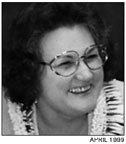
LOKELANI LINDSEY still owns a house in Hauula, but she lives in Las Vegas. She served six months in federal prison in 2004 for bankruptcy fraud, and is on supervised release. Her husband, Stephen, died last year. |
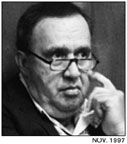
HENRY PETERS lives in Maili and has been managing his late father's rental properties and helping his mother. He also dabbles in real estate and does a lot of trading online. |
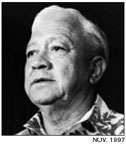
OSWALD "OZ" STENDER is a trustee of the Office of Hawaiian Affairs, where he has been focusing on education. He also works as a real estate consultant and broker. |
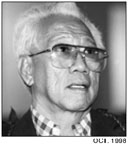 RICHARD "DICKIE" WONG, who lives in Nuuanu, has been volunteering his time as a public advocate for the homeless and lobbying to keep housing projects such as Kukui Gardens affordable.
|
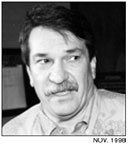
GERARD A. JERVIS specializes in personal injury law in his private practice in Kailua, which he opened in 2000. |
|
"It is a story of great courage, vision and perseverance in the face of overwhelming odds," he said. "I think all people of Hawaii should read it and consider it, and criticize or laud it as they have the facts to support."
"It's not perfect, but I think it's a good first slice at trying to get all the facts together and I think that, long term, it will serve the community well," he said.
He values the book's historical sweep. It notes that the estate's first board of trustees were all haole annexationists, and the schools reflected that, cutting students off from their rich culture and holding them in low esteem, Dill said.
As early as 1916, Kamehameha alumnus Charles E. King and his classmates publicly criticized the school for low educational standards. Probate Court Judge Clarence Ashford then tried to appoint King as the first Hawaiian on Bishop Estate's board but was overruled by the Supreme Court.
Issues that came to a head at the end of the century had roots long before. In 1943, for instance, territorial Sens. William Heen and David Trask accused the trustees of acting like "landed barons," collecting big fees while treating Hawaiians like beggars, according to the book.
Those who have reviewed "Broken Trust" say it underscores the need for public vigilance when vast concentrations of wealth are controlled by a few people. It offers a manual for trustees, lawyers, government and public and government officials in "what not to do," said Chicago trust attorney Howard M. McCue III.
"This is a seminal case," said McCue, chairman of the Charitable Planning Committee of the American College of Trust and Estate Counsel. "'Broken Trust' sends a very important message about trying to gain control of a runaway train, where the runaway train has got great economic clout and great political power. ... And it's just a really good read."
McCue represented the alumni of a school for orphans endowed by the multibillion-dollar Hershey Trust in Pennsylvania, in a similar battle where trustees were faulted for pocketing too much money and not serving enough orphans.
Roth, a professor at the University of Hawaii, said Kamehameha Schools should benefit from the public release of information, even if some is confidential, because "a lot of the problems in the past resulted from extreme secrecy."
"People who care about the trust need to be informed and vigilant if they hope to protect and preserve Princess Pauahi's legacy," he said. "How is the trust served by taking vital information about what happened and sealing it forever?"

